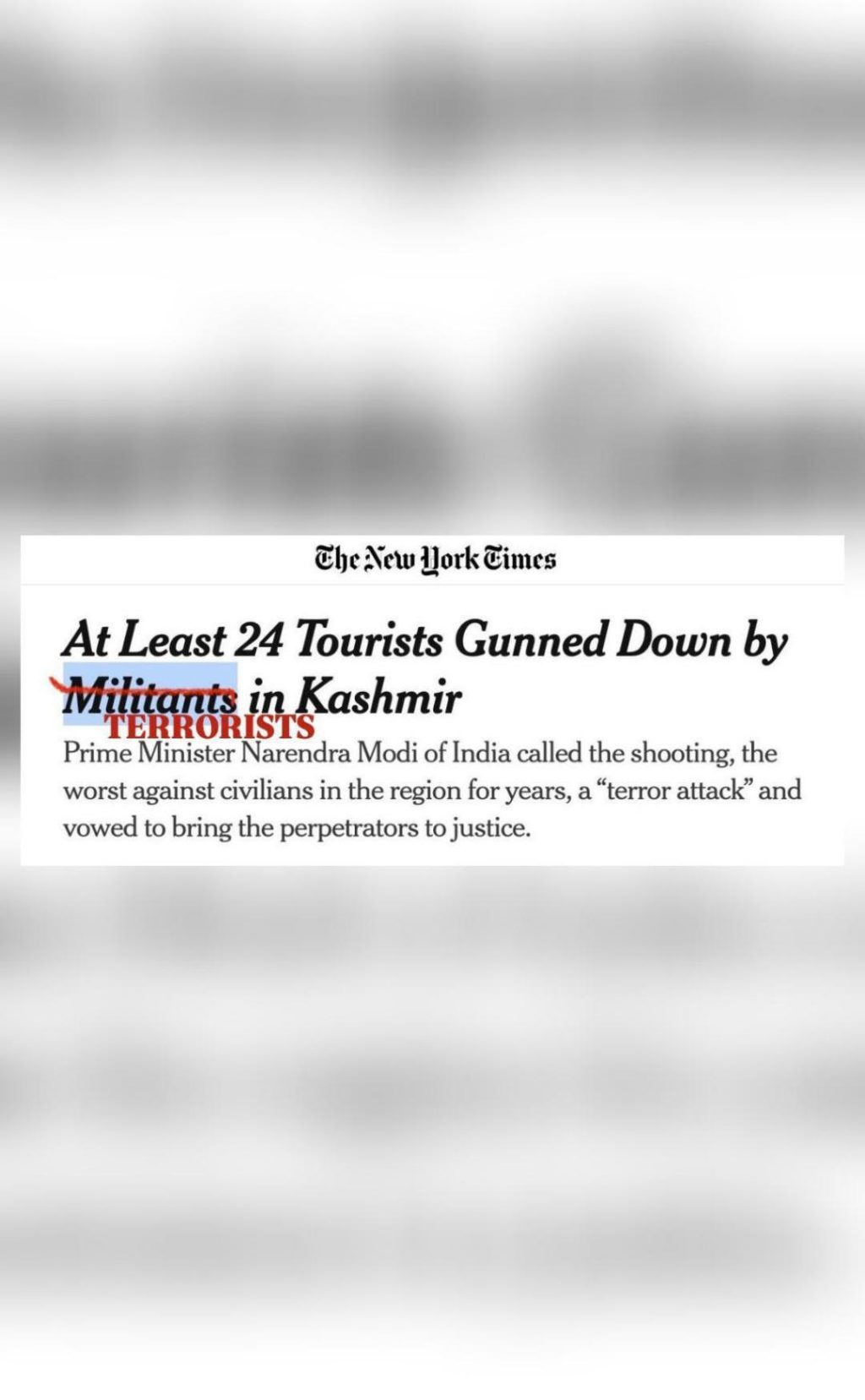
Hey NYT, fixed it for you: US committee after news portal calls J&K terrorists ‘militants’
The world of journalism is often criticized for its biases and subjective reporting. Recently, a controversy has erupted over a New York Times (NYT) article that referred to terrorists behind an attack in Pahalgam, Jammu and Kashmir as “militants”. This sparked a heated debate, with the US House Committee on Foreign Affairs taking to social media to express their discontent and “correct” the article.
On November 14, the US House Committee on Foreign Affairs shared a screenshot of the NYT article on Twitter, captioning it, “Hey NYT, we fixed it for you… This was a TERRORIST ATTACK plain and simple… Whether it’s India or Israel, when it comes to TERRORISM, NYT is removed from reality.” The post has since gained a significant amount of attention and engagement on the platform.
The original NYT article in question reported on a terror attack that took place in Pahalgam, where a group of terrorists opened fire on a tourist bus, killing and injuring multiple people. While the article did use the term “militants” to describe the perpetrators, the US House Committee on Foreign Affairs took issue with this description, labeling it as inaccurate and downplaying the severity of the attack.
The committee’s tweet was met with widespread support from many users, who echoed their sentiments about the NYT’s language. Many pointed out that the term “militants” is often used by the media to describe certain groups, implying that they are fighting for a legitimate cause, rather than simply being terrorists. Others criticized the NYT for its perceived bias and lack of objectivity in reporting on certain conflicts.
However, not everyone agreed with the committee’s assessment. Some users defended the NYT’s use of the term “militants”, arguing that it is a more nuanced and accurate description of the situation on the ground. They pointed out that the term “terrorist” is often used to stigmatize and demonize certain groups, and that the NYT’s use of “militants” was an attempt to provide a more balanced view.
Despite the controversy, the US House Committee on Foreign Affairs stood by their tweet, reiterating their stance that the attack was a “terrorist” attack and that the NYT’s language was inaccurate and misleading. The committee’s chairman, Michael McCaul, went on to explain that the committee’s goal was not to censor the media, but to encourage more accurate and honest reporting.
The incident highlights the ongoing debate about language and terminology in journalism, particularly when it comes to reporting on conflicts and terrorism. While some argue that using specific labels can be problematic, others believe that it is essential to accurately describe the situation on the ground.
The New York Times has faced criticism in the past for its reporting on certain conflicts, particularly in the Middle East. Some have accused the paper of being too sympathetic to certain groups or ideologies, while others have criticized its perceived bias against Israel.
The committee’s tweet and the subsequent backlash has sparked a wider conversation about the role of language in shaping our understanding of conflicts and terrorism. It has also raised questions about the responsibility of the media to accurately report on these issues, and the impact that language can have on public perception and opinion.
In conclusion, the controversy over the US House Committee on Foreign Affairs’ tweet highlights the importance of accurate and honest reporting in journalism. While the committee’s actions may have been seen as provocative by some, they also serve as a reminder of the importance of using language that is precise and accurate, particularly when reporting on sensitive and controversial issues.
As the world grapples with the challenges of terrorism and conflict, it is essential that the media plays a responsible and accurate role in reporting on these issues. By using language that is clear and concise, the media can help to shape public opinion and inform our understanding of these complex issues.
Source: https://x.com/HouseForeignGOP/status/1914843415793095043



